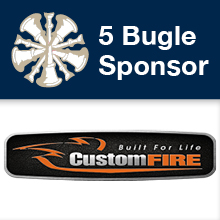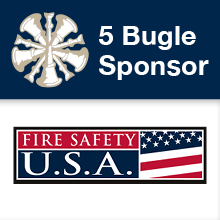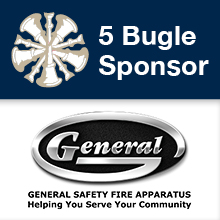|
2023 Duluth Fire Officer & Training Officer School
Class InformationAttendees can register for one (1) 12-hour class, which is held on Saturday and Sunday OR one (1) 8-hour class, held only on Saturday, along with one (1) 4-hour class, held only on Sunday. Please click here to view class descriptions.
12-Hour Classes Decision-Making for Initial Company Operations (NFA) This course is designed to develop the decision-making skills needed by Company Officers (COs) to accomplish assigned tactics at structure fires. All activities and scenarios used in this course are based on structure fires. With the real possibility of being the first to arrive at an incident, the CO’s initial decisions will have an impact throughout the entire incident. It is vital that COs be able to make good management decisions that have a favorable impact on the eventual outcome. In addition to a possible role as the initial Incident Commander, the CO may well be assigned a subordinate position within the Incident Command System (ICS) organization. COs need to have a clear understanding of the system, the position that they are assigned to, and their role in the organization if they are to function effectively and help make the system work. This course is an excellent review for experienced COs. Critical Thinking for Fire Ground Operations Each and everyday Emergency Services respond to numerous calls that require different approaches to best control the situation. Often, the decisions of controlling that situation happen within seconds. Some of these situations end up going longer than the “normal” call. This critical thinking session is designed to provide you a background and enhance your decision making on a scene both initially and long term incidents. Learn from case studies and lessons learned on the ICS City a 5 ft. x 32 ft. training city that you will be utilizing during the session. The session scenarios will start at a baseline level and grow in intensity and complexity. The ICS City allows for students to utilize the concepts learned during class and their “real world” experience and apply to the exercise that is unfolding in front of them “in the city”. The session will have training components and many “hands on” opportunities with the ICS City.
Good to Great Leadership *This class is full. Please email [email protected] to be added to a waitlist. Participants will learn the importance of conducting a thorough size up before committing limited resources. This course will develop company officers’ incident scene supervisory and management capabilities in structural fire operations. Key content includes discussion and scenario based practice on controlling and implementing the activities that need to be done to successfully deal with personnel performing the following operations; rescue and ventilation, confinement and extinguishment, water supply, exposures, offensive and defensive operations, salvage, overhaul and support. This course takes a practical, common sense approach to fighting fires in single-family homes, multi-family apartment buildings, light industrial and commercial structures. It takes into account the realities of today's fire service – that is, most fire departments in this country are, understaffed, less experienced and involved in more EMS than ever before. If your incidents seem to run themselves and you’re not in control then this course is for you. 10 Minutes and Beyond The overall goal of the course “10 Minutes and Beyond” is to build on the training obtained in the previous MSFCA Fire Officers School class: “The First 5 Minutes”. The purpose of this training will emphasize the behaviors necessary to ensure safe incident ground operations through lecture, demonstrations, individual, and group activities.
The course will be scenario driven and will attempt to focus on fire-ground operations, crash incidents, search incidents, and natural disasters. The Accountability of Leadership - From the Scene to the Station 8-Hour ClassesState Fire Marshal: So You Want To Be a Fire Chief? Are you interested in someday becoming the fire chief of your fire department? Are you the chief of your fire department, but have never been informed and/or didn’t realize all the responsibilities of a chief? This class is for you! State Fire Marshal Division staff will help you understand the responsibilities and requirements of a fire chief and the resources you have available to help you and your fire department.
These topics and questions along with many more will be discussed in this session. There will also be an open discussion forum for attendees to “dive” deeper into any of the topics covered. EMS Attack Crew: Managing the Medical Call as a First-In Fire Crew EMS Attack Crew is a collection of modern and innovative techniques for fire department personnel to use when responding to an emergency medical call. The 8-hour course looks at a variety of medical calls, breaks them down to their core components and shows fire crews how they can better manage every medical call they respond to. The course is well-balanced with hands-on training, classroom discussions and videos, making it a perfect course for firefighters and officers of all experience levels. EMS Attack Crew prepares first responders to think and act quickly as a team, ultimately leading to the best possible outcome for the patient. 4-Hour ClassesRoundtable MnFIRE Cancer: According to the National Institute for Occupational Safety and Health (NIOSH), firefighters have a 9% higher risk of being diagnosed with cancer and a 14% higher risk of dying from cancer than the general U.S. population. This tragic reality underscores the critical need for more Minnesota firefighters to be aware of their higher risks for cancer – and what they can do to help prevent it. In our cancer deep-dive class, we’ll educate firefighters on activities that put them at higher risk for developing cancer, proper PPE strategies for mitigating cancer risks, and what types of screenings can be done to catch cancer early. |







